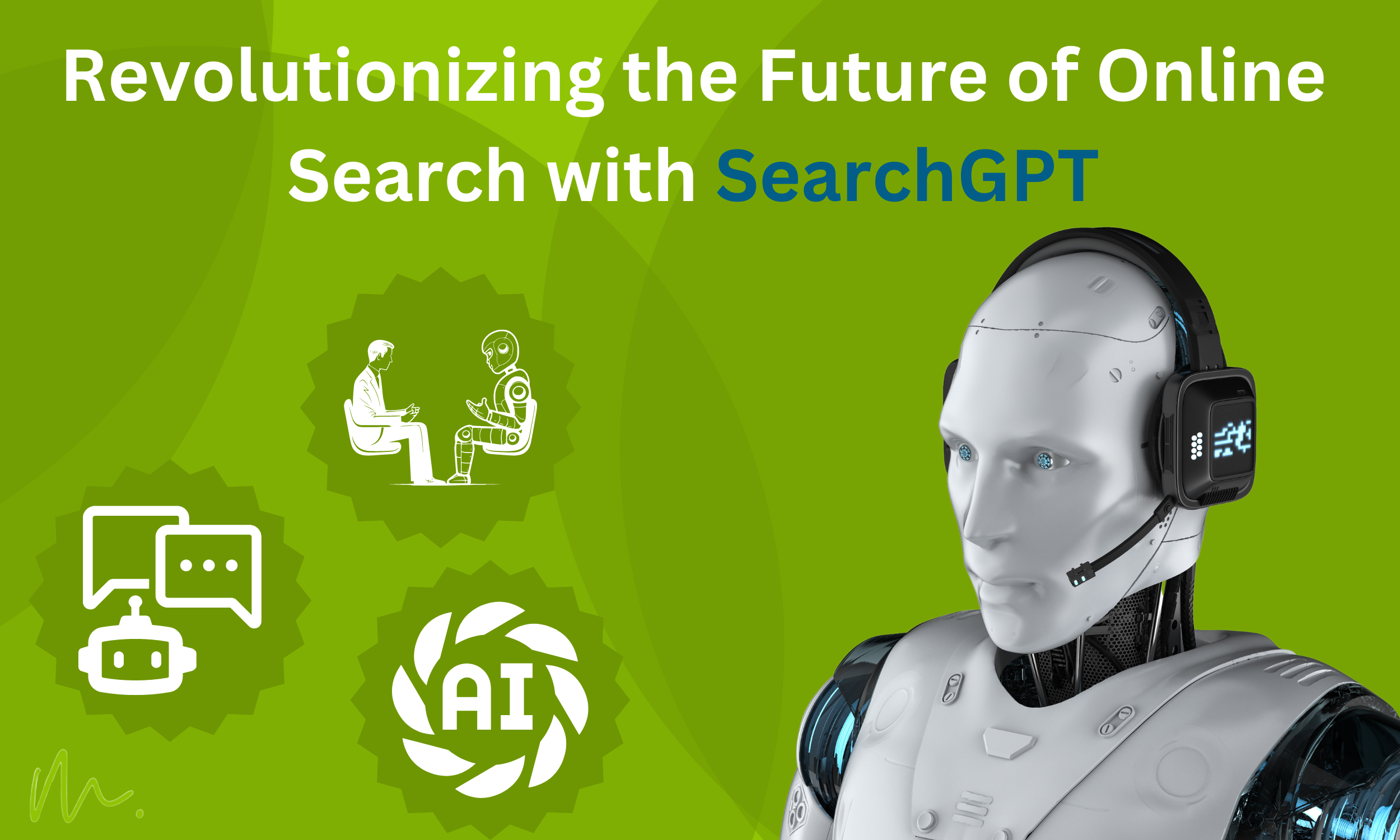Revolutionizing the Future of Online Search with SearchGPT

In the digital age, the way we search for information has evolved dramatically. With the evolution of early means of web search to the modern type of search engine algorithms, web search has remained a crucial part of our lives. As technology continues to advance, a new paradigm is emerging that promises to revolutionize how we access and interact with information online: Yes, Search GPT.
Table of Content –
- The Evolution of Online Search
- What is SearchGPT?
- How SearchGPT Revolutionizes Online Search
- Challenges and Considerations
- Search GPT and the Future of Online Search
- Conclusion
- FAQs
The Evolution of Online Search
It is rather crucial to comprehend the evolutionary process of online search to embrace the worth of SearchGPT and its influence in the modern world. In the beginning, search engines relied on simple keyword matching to deliver results. When people began to use the internet actively, search engines such as Google started to develop new algorithms that would include relevance, authority and intent of the user to the pages that would be ranked at the top.
However, nowadays, traditional search engines still have their problems. They often struggle with understanding natural language, context, and nuanced queries. Enter SearchGPT, a next-gen Artificial Intelligence based search engine.
What is SearchGPT?
SearchGPT is a highly evolved language model designed by OpenAI with relations to GPT-4. SearchGPT does not solely depend on the keyword matching and ranking of algorithms, instead, it uses the natural language processing and deep learning technologies. This allows it to produce contextually relevant responses to the user queries more accurately.
How SearchGPT Revolutionizes Online Search
Natural Language Understanding
One of the most significant advantages of SearchGPT is its ability to understand and process natural language. This implies that the users can engage the search engine in a broader, freer manner and type a question or request specific information in a broader form, without searching for exact terms they should use. Since SearchGPT is capable of understanding the context, fine nuances, and the intent of the search query, it becomes easier for the user to get what they really want.
Enhanced Contextual Awareness
While using traditional engines it becomes quite difficult to answer questions that involve context weightage. In this area, however, SearchGPT is incredible. It can take account of what came before a search or what might be related to the query to offer better results. Such contextual awareness is more convenient when it comes to working with intricate questions or overall research objectives.
Conversational Responses
Unlike relayGPT that aims at providing links and excerpt answers, SearchGPT can provide extensive articulated and natural questions and answers to users’ questions. Besides time efficiency, the given approach contributes to the overall improvement of usability due to comprehensible and concise information. For instance, instead of having to browse through several articles to come across an answer to something, one can get a fair evaluation of the topic in one location.
Personalization and Adaptation
As with the interaction, preferences, and feedback given by the users, SearchGPT can adapt to these by creating customized searches. In the longer run, it can discover the needs of the specific users and as a result provide even more appropriate answers. These personalizations just make the general search so much better, easier and fun.
Versatility and Multi-functionality
In addition to general and advanced search, SearchGPT can be easily implemented in other interfaces and programs like virtual assistants, customer support bots, and creating software. Due to this, it becomes a useful tool for both the business and the individual to get access to information and support cross domain.
Challenges and Considerations
Thus, though SearchGPT offers numerous advantages, it also presents some challenges. This is because the technology requires a lot of data thus causing concern on the privacy and security of data. Additionally, there is the potential for biases in the model’s responses, depending on the training data it has been exposed to. Developers and other stakeholders should ensure that their product, SearchGPT, is used in the correct manner and in a manner that is socially acceptable.
Search GPT and the Future of Online Search
With SearchGPT and other similar techs in development, the future of online search appears to be bright. We can expect more intuitive and efficient ways of accessing information with search engines becoming more like conversational partners than simple query tools. Such a change brings emerging concepts like the following; Personalized content, Voice search and Augmented reality search experiences.
Conclusion
In conclusion, one can state that SearchGPT is a giant leap in the world of Internet search engines. By harnessing the power of advanced NLP and deep learning, it promises to revolutionize how we interact with and access information on the internet. Therefore, as we go to the future, adopting and developing this technology will remain central to the eventual optimization of the technology and transforming the way we search and learn in the digital age.
Check out TheManinderShow, the leading digital marketing service provider for your business.
FAQs
Q) Can SearchGPT understand and respond to complex questions?
Ans. Yes, SearchGPT is designed to understand complex and meaningful questions. It uses advanced NLP techniques to grasp the context and intent of queries that allows it to provide comprehensive and accurate responses.
Q) Is SearchGPT safe to use in terms of privacy and data security?
Ans. While SearchGPT offers advanced capabilities, it is crucial to use it responsibly. Users should be aware of privacy concerns, as the technology relies on large datasets.
Q) How does SearchGPT personalize search results?
Ans. SearchGPT can learn from user interactions, preferences and feedback to offer more relevant and personalized search results. Over time, it adapts to individual users’ needs and improves the accuracy and relevance of its responses.

Recent Comments